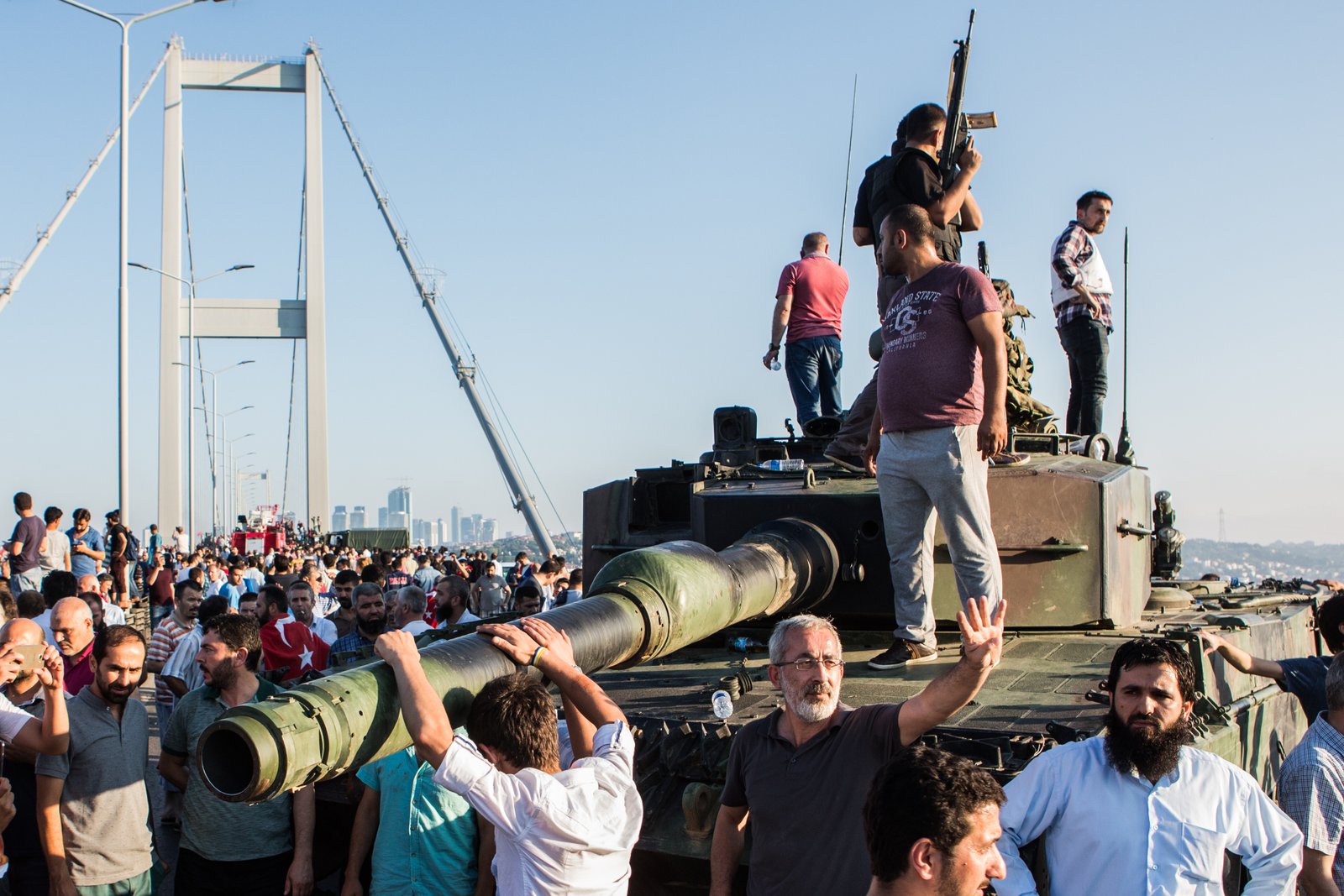
“Six months after Turkey’s failed coup, questions about what actually happened have been submerged by a bludgeoning myth” said Gareth Jenkins, a prominent analyst on Turkey, and added that Turkish government’s central thesis (the putsch was instigated by Gülenists) has yet to be proved.
Writing an analysis on July 15, 2016 coup attempt for The Turkish Analyst, a publication of the Central Asia-Caucasus Institute & Silk Road Studies Program Joint Center, Gareth H. Jenkins stated that “Six months after the failed coup attempt of July 15, 2016, many questions still remain unanswered. Disturbingly, most can no longer be asked. Amid the purges, imprisonments and oppression, Turkey has become a country that is devouring itself.”
Jenkins said that Turkish Foreign Ministry would have been justified in asking how the EU’s intelligence-sharing unit INTCEN, which questions the Turkish government’s claims that the coup attempt was masterminded by Fethullah Gülen. could be so certain, particularly as the report does not cite any concrete evidence. “But,” he said “the same question could also be directed at the Turkish authorities. As soon as the news of the attempted putsch broke – long before the identities of the participating officers had become clear – President Recep Tayyip Erdoğan and the members of the ruling Justice and Development Party (AKP) immediately blamed the Gülen Movement. It was an assumption, not a deduction.”
INTCEN has claimed in its report that some of Gülen’s followers probably participated in the coup, adding that it was unlikely that Gülen himself had masterminded it. Jenkins, who has accussed of Gülen movement for some alleged rights violations between 2007-2013, wrote even in these the extent of Gülen’s personal involvement remains unclear.
Jenkins underlined the fact that the Gülen Movement’s past record is not, in itself, proof that it was responsible for the attempted coup. He added “Yet, over the last six months, Turkish officials have locked themselves into an unquestionable narrative. The putsch and the reaction to it have been airbrushed into a myth – a fusion of people and leader, in which Erdoğan is portrayed as the embodiment of the national will, heroically defending the country against an Orwellian ‘forever enemy’ in the form of the Gülen Movement and the scheming West that is allegedly controlling it.”
“The Turkish authorities have yet to produce convincing evidence to support their narrative. Much still remains unclear. Perhaps even more disturbing than the absence of answers is that questions are not even being asked,” wrote Jenkins. He also added that “Despite months of vigorous interrogation, no convincing evidence has yet been made public about how the coup was planned or coordinated. There can be no doubt that, if such evidence had emerged, the Turkish authorities would have ensured it was in the public domain.”
Jenkins concluded that “Six months after Turkey’s failed coup, questions about what actually happened have been submerged by a bludgeoning myth. The government’s central thesis – that the putsch was instigated by Gülenists – may be true. But it has yet to be proved.”
Stressing on the fact that no one in Turkey is asking whether Erdoğan needed to call his supporters onto the streets instead of waiting for the loyal majority of the security forces to restore order – a process that may have been slower but would have resulted in considerably less civilian casualties, Jenkins wrote “Nor is anyone asking why, if his supporters were defending democracy, they chanted only religious slogans, also attacked Alevis and Syrian refugees and, over the last six months, have remained silent while his opponents been persecuted and denied even the most basic of human rights.”
“One thing that be said with certainty about the failed putsch is that it was instigated by Turks. And now – amid the purges, imprisonments and oppression – the country is devouring itself,” has said Jenkins.
















Yes, indeed, the warp and weft of Turkish society has quickly disintegrated. Turks have turned against each other and it will take decades or more before they reconcile to the brutality and ugliness of today’s Turkey. It seems to remind me of Stalin’s time or, as I have made the comparison before, to the era of Abdul Hamit II.